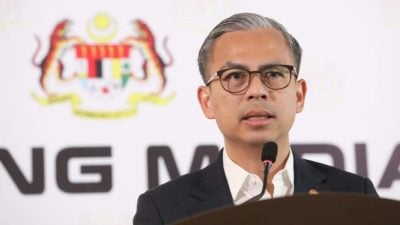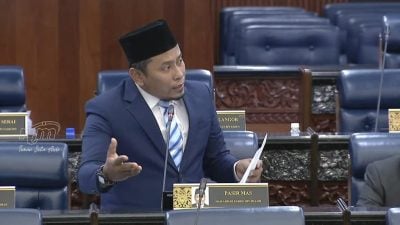The country’s press freedom index will only continue to improve with law amendment, media self-discipline and expanded room for free reporting.
21 senior media practitioners and media-related organizations have issued a statement blasting the MCMC for warning and summoning some news editors and blocking certain news portals, calling the act inappropriate. They were of the view that journalists understand their responsibilities and will use their own professionalism and code of ethics to guide their news reporting, and as such do not need MCMC to preach to them on what constitutes “good and fair” reporting.
The statement mentioned that news portal MalaysiaNow had been instructed to make changes or take down a report pertaining to the ruckus in Dewan Rakyat on Sept. 19, when, in concluding the 12th Malaysia Plan mid-term review, PM Anwar Ibrahim’s explanation of Ahmad Zahid’s DNAA was met with ridicule from Bersatu’s MP Mohd Radzi Md Jidin. Anwar fought back: “You can laugh, but you did the same when you were in government!”
Following that, representatives on both sides of the aisle erupted into a verbal brawl that lasted almost half an hour, culminating in Mohd Radzi’s expulsion from the hall, with opposition leader Hamzah Zainudin and other opposition reps walking out in protest.
The Sept. 19 ruckus in Dewan Rakyat was a major embarrassment and was definitely beyond the confines of good conduct for elected reps. As the sitting was telecast live, the whole commotion was visible to everyone on all social media platforms. In view of that, the media practitioners pointed out in their joint statement that MCMC’s intervention in this matter, including threatening news portals to take down the report, was extremely unfair.
MCMC had demanded MalaysiaNow to take down the news report on the grounds part of the news report had been “weaponized to manipulate the content and fuel a disrespectful and divisive narrative.”
News media has traditionally been referred to as the Fourth Estate, and press freedom is prerequisite for the media to play this utterly important role as a civil watchdog. The joint statement pointed out that the problems faced by the MCMC in managing social media should not be an excuse to curtail the right of media practitioners to carry out their responsibilities.

Communications and Digital Minister Ahmad Fahmi Mohamed Fadzil, who had just returned from an overseas trip, said he had yet to be briefed by MCMC and was therefore unable to comment on this matter. However, he defended MCMC’s action, saying he believed MCMC had acted in accordance with the law while encouraging the media regulator to further probe this matter.
Fahmi insisted that he himself respected the feedback from the media, saying media is very important to the government, but factual reporting is just as important.
Indeed, while defending press freedom, self-discipline, adherence to code of ethics and a sense of responsibility on the part of the press are also of great importance, for this will enable them to deliver more comprehensive and precise information to the general public.
If a news report carries a factual mistake, the authorities can issue a letter or a statement to clarify without having to resort to more drastic measures such as blocking a website. We are concerned that once a precedent has been set, more unnecessary controversies may ensue.
As the prime minister has stressed earlier, media practitioners must be allowed to work in an environment free from fear and prejudice. To construct a healthier media ecosystem, the media’s professionalism and self-discipline, as well as understanding from the relevant government authorities, are requisite.
Deputy Communications and Digital Minister Teo Nie Ching said in March this year that the Unity Government would re-initiate the establishment of the Malaysian Media Council, and that she herself had been tasked to er-look into the proposals made by the pro-tem committee set up by the media fraternity, to ensure that the soon-to-be-established media council would be consistent with the changes taking place in today’s media landscape.
As Media Chinese International Limited (Malaysia) Group Editor-in-Chief and Sin Chew Daily Editor-in-Chief Kuik Cheng Kang has said, the biggest threat encountered by the media industry today has stemmed from the relevant laws regarding printing, publishing, sedition and defamation. If the government does not amend these laws that threaten the operation of the press, the establishment of the media council will at best put an additional curb on media practitioners.
According to Reporters sans frontières (Reporters Without Borders), Malaysia ranked 73rd in the 2023 World Press Freedom Index, a vast improvement from 113th merely a year ago and the country’s worst ever ranking at 147th in 2014/15. While press freedom is almost always viewed in the same light as democratic politics, the degree of press freedom here in Malaysia is still within the scope of “being restricted.”
It is our hope that the country’s press freedom index will continue to improve in the years to come, but this will only be possible with law amendment, media self-discipline and expanded room for free reporting.
ADVERTISEMENT
ADVERTISEMENT







































